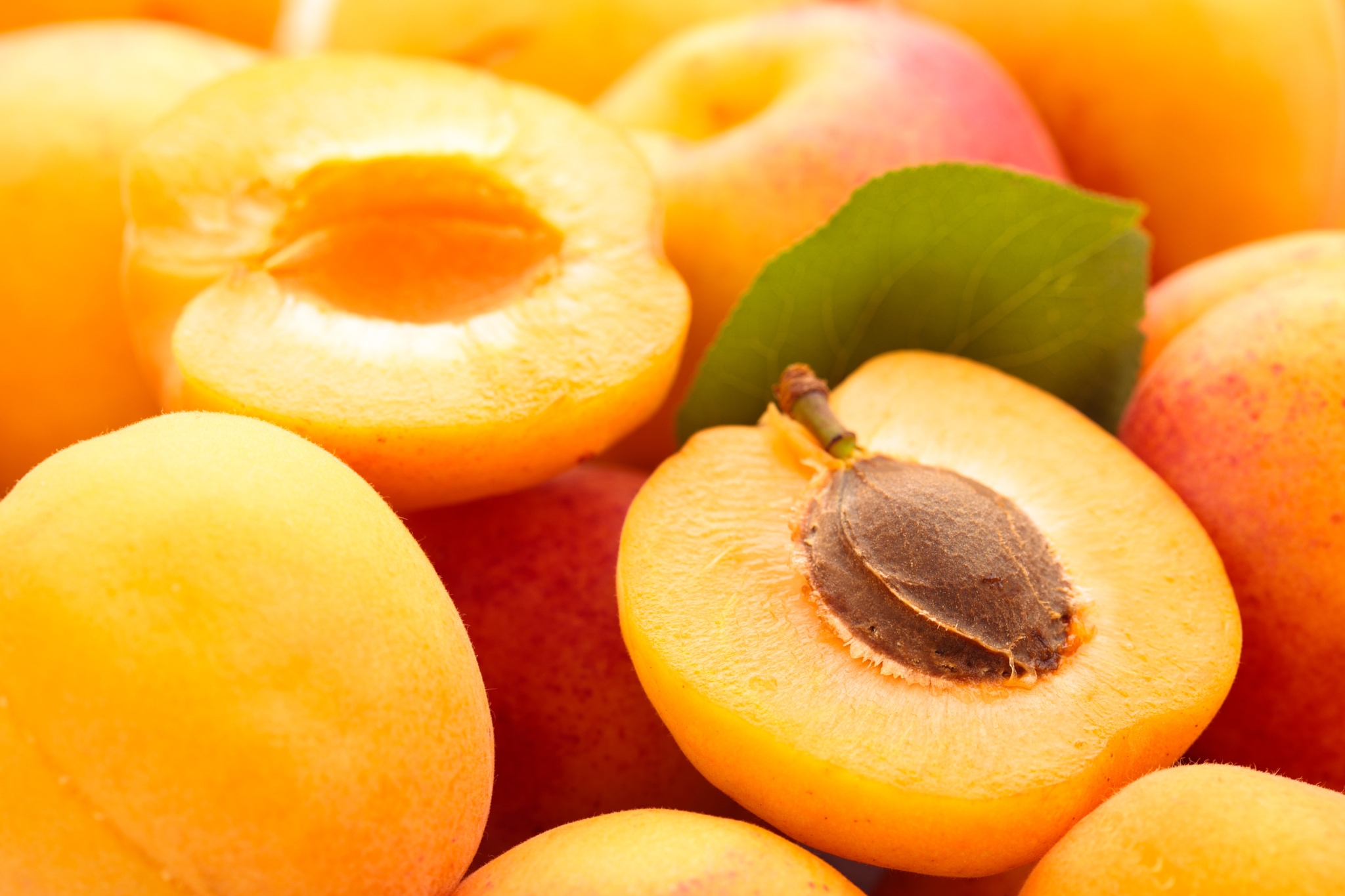Health and Nutrition Benefits of Apricots
Apricots (Prunus armeniaca) are stone fruits also known as Armenian plums.
Round and yellow, they look like a smaller version of a peach but share the tartness of purple plums.
They’re extremely nutritious and have many health benefits, such as improved digestion and eye health.
Here are 7 health and nutrition benefits of apricots.

1. Very nutritious and low in calories
Apricots are very nutritious and contain many essential vitamins and minerals.
Just 2 fresh apricots (70 grams) provide:
- calories: 34
- carbs: 8 grams
- protein: 1 gram
- fat: 0.27 grams
- fiber: 1.5 grams
- vitamin A: 8% of the Daily Value (DV)
- vitamin C: 8% of the DV
- vitamin E: 4% of the DV
- potassium: 4% of the DV
Furthermore, this fruit is a decent source of beta carotene, lutein, and zeaxanthin, all of which are potent antioxidants that help fight free radicals in your body.
It’s best to enjoy apricots whole and unpeeled, as the skin boasts large amounts of fiber and nutrients. What’s more, they’re high in a group of polyphenol antioxidants called flavonoids, which have been shown to protect against illnesses, including diabetes and heart disease.
The main flavonoids in apricots are chlorogenic acids, catechins, and quercetin. These compounds work to neutralize free radicals, which are harmful compounds that damage cells and cause oxidative stress.
2. Eye health
Apricots boast multiple compounds that are essential for eye health, including vitamins A and E. Vitamin A plays a vital role in preventing night blindness, a disorder caused by lack of light pigments in eyes, while vitamin E is a fat-soluble antioxidant that enters eyes directly to protect them from free radical damage.
Meanwhile, beta carotene — which gives apricots their yellow-orange color — serves as a precursor to vitamin A.
Other important apricot carotenoids include lutein and zeaxanthin. Found in the lenses and retinas of eyes, they safeguard against oxidative stress.

3. May boost skin health
The main causes of wrinkles and skin damage are environmental factors, such as the sun, pollution. Vitamins C and E, both found in this fruit, may aid skin. In particular, vitamin C protects against UV damage and environmental pollutants by neutralizing free radicals. Furthermore, this vitamin helps build collagen, which gives skin strength and elasticity. Beta carotene, another apricot nutrient, may protect against sunburns.
4. Muscle
Apricots are one of the best sources of potassium. In fact, a single serving of apricot could provide almost one-quarter of a person’s daily needs.
Potassium is an electrolyte that the nerves need to function and the muscles need to contract. The body also needs potassium to move nutrients into cells and dispose of cellular waste.
5.The immune system
Apricots are also a good source of vitamin C, which is one of the vitamins that the human body cannot produce. This means that people must get enough vitamin C from their diets.
Vitamin C has many functions. For example, it is an antioxidant that helps protect the cells in the body from damaging free radicals. The body also needs it to make collagen to repair wounds.
Vitamin C plays an essential role in the immune system, helping the body’s natural defense mechanisms fight off bacteria and viruses.

How to eat
Apricots are safe to eat raw. And dried and fresh apricots are tasty additions to a yogurt or porridge, for either breakfast or a snack.
Some studies have shown that freezing or canning apricots does not seem to reduce their nutritional value.